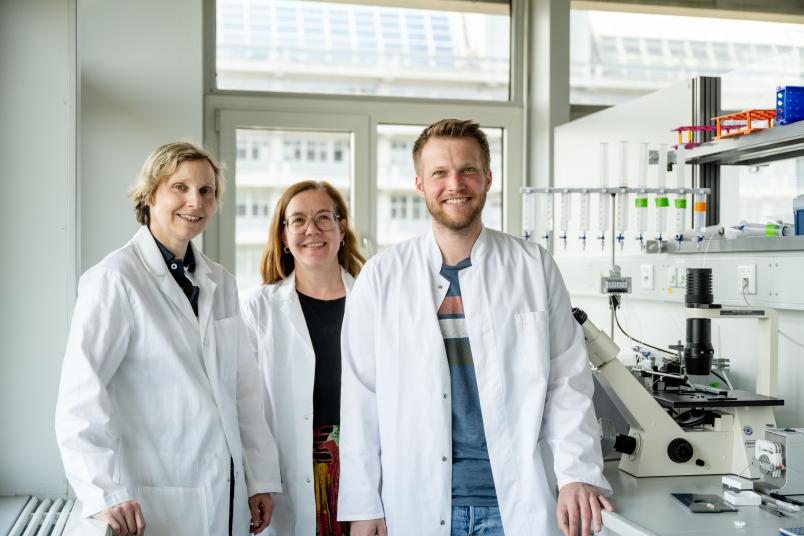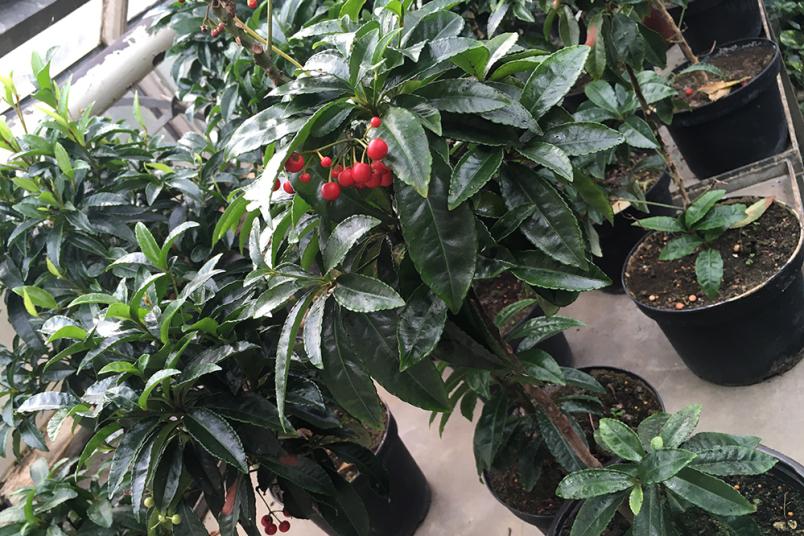
Medicine
Active Plant Substance Reduces Pulmonary Hypertension
A substance derived from the plant Ardisia crenata works in a different way than existing drugs. And in doing so, it is highly effective.
Pulmonary hypertension is a very serious disease that leads to heart failure and death in many patients. Searching for new treatment options, a team headed by Professor Daniela Wenzel and Dr. Alexander Seidinger from the Department of Systems Physiology at Ruhr University Bochum, Germany, tested the plant substance FR900359 – referred to as FR by the researchers. It differs from previously used active substances in that it targets a different point in the signaling pathway that leads to pulmonary hypertension. As a result, it simultaneously inhibits numerous factors that lead to vasoconstriction in the lungs. “In our experiments, FR relaxed the vessels quickly and effectively and produced a good therapeutic effect,” as Alexander Seidinger, first author of the study, outlines the findings. The results were published in the journal EMBO Molecular Medicine on July 8, 2024.
What causes pulmonary hypertension
The blood pressure inside the lungs is typically much lower than in the rest of the body. Pulmonary hypertension occurs when the blood vessels within the lungs contract and the smooth muscle layer surrounding these vessels thickens. The disease puts constant stress on the right heart, as it needs considerably more strength to pump the blood through the lungs. As a result, the heart becomes enlarged and may eventually fail due to overload. “The causes of pulmonary hypertension are often obscure,” points out Alexander Seidinger.
As part of his doctoral thesis, he focused on finding new treatment options for this serious disease. Current drugs are based on blocking individual receptors or signaling pathways that transmit the signal to constrict the pulmonary vessels. “However, there are many of these so-called vasoconstrictors,” says Alexander Seidinger. “And each one has its own receptor. A single blockade is therefore not very effective.”

Gq proteins make a promising target
The researchers chose a different approach: Rather than targeting the signal transmitter, it intervenes at a later stage in signal transmission. “Within the cells, there are only a few pathways through which the signal for vasoconstriction is passed on,” explains Seidinger. “So-called Gq proteins are involved in many of these pathways. This makes them a good target for intervention.”
Previous studies had shown that the substance FR from the plant Ardisia crenata, which is a common houseplant, has an effect on Gq proteins. The researchers therefore hoped to use FR to inhibit many different vasoconstrictors equally. They first tested the substance on isolated pulmonary vessels from mice and demonstrated its effectiveness. “FR quickly resulted in significant vascular relaxation,” points out Alexander Seidinger. Subsequent tests on tissue from pigs and human samples confirmed this effect. In experiments on mice suffering from pulmonary hypertension, the researchers eventually showed that treatment with FR alleviated the symptoms and greatly improved the animals’ state of health. “The thickness of the muscle layer around the pulmonary vessels decreased – or didn’t even increase in the first place,” says Seidinger.
The researchers only observed minor side effects: The blood pressure dropped slightly throughout the body. In fact, this could be beneficial in the treatment of pulmonary hypertension. “FR could therefore be a promising drug candidate for the treatment of the disease,” concludes Alexander Seidinger. “However, it will certainly take many years of intensive research before it can be used in clinical practice.”